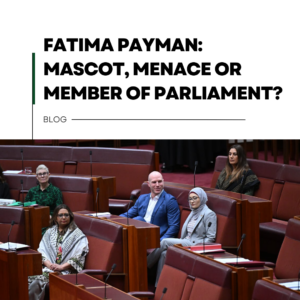Islam’s stance on keeping religion independent from the ways of a state ensures that Islam remains compatible with true forms of democracy.
We believe that religion is a vital contributing factor for building relationships and there is good ground for hope that it might progressively become more effective in promoting unity and accord, rather than continue to be a source of friction and conflict.
Islam has laid great emphasis on ensuring that there is a distinct separation of state and religion.
In one verse, the Holy Qur’an teaches us that:
“There should be no compulsion in matters of faith” (2:257).
Historically, this verse was revealed when the Holy Prophet of Islam (peace be upon him) had already established an (Islamic) government in Madinah. Prophet Muhammad (peace be upon him) had been accepted as head of the state, and he had in place a covenant with the local tribes, including the Jews. The injunction in the Holy Quran to keep religion and government independent of each other was revealed at that time. Even though the difference between right and wrong had become manifest, and even though Muslims believed their religion to be true and their teachings to be unparalleled, the Prophet of Islam still ensured that non-Muslims were provided with their due rights and were looked after as equal citizens belonging to that nation.
“I have forbidden injustice for Myself, and have made it forbidden amongst you, so do not oppress one another.”
Islam endorses a secular type of government; this practice is witnessed in Islam more than in any other religion.
Islam, though not a political system, also provides guidelines that are more just and equitable than any other worldly political system. The very essence of secularism is that absolute justice must be practised regardless of differences in faith, religion, colour or creed. Injustice towards anyone is severely admonished in Islam and emphasised throughout the Holy Quran.
“Be always just, that is nearer to righteousness. And fear Allah. Surely, Allah is aware of what you do.” (5:9).
Islam instructs that its followers always display cooperative and obedient behaviour to those in authority. Being obedient and respectful to those who maintain a nation’s’ public affairs is a required undertaking for every Muslim, ensuring that they also fulfil the duty of obedience towards their God and towards His Messenger (4:60).
We believe that a requirement for a just government is that it should separate religious matters from matters of state, and every citizen should be afforded their due rights.




